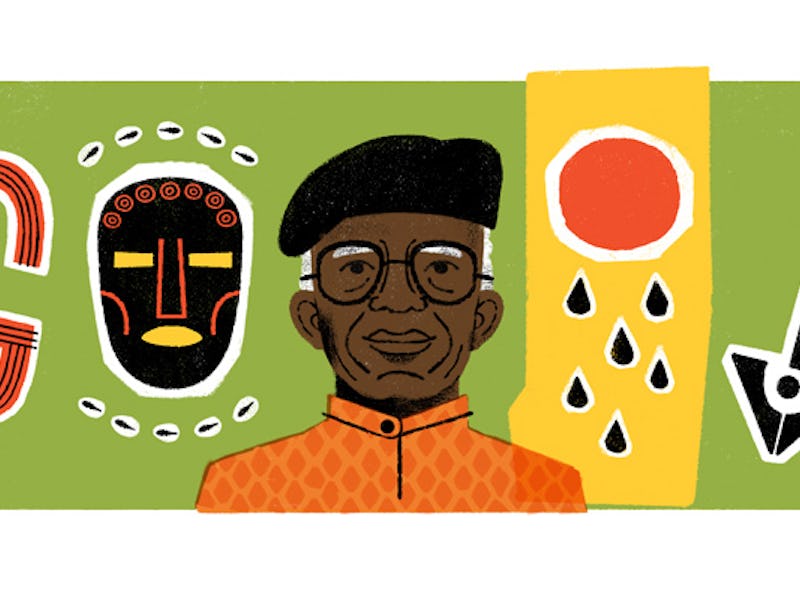How Chinua Achebe Became the ‘Father of Modern African Literature’
Google's doodle celebrates the author's 87th birthday.

Google celebrated the 87th birthday of influential author Chinua Achebe on Thursday with a special “doodle” on its homepage. Born in Nigeria in 1930, the writer left a stunning legacy of novels and literary criticism when he passed away in 2013, leading many to describe him as “the father of modern African literature.”
Achebe brilliantly captured the voices of African life throughout his work. His 1958 novel Things Fall Apart tells the story of Okonkwo, an Igbo man living under British colonial rule. Critically acclaimed, it has sold over 10 million copies, has been translated into over 50 languages around the world and is required reading in schools all over. The book forms part of what is known as Achebe’s “African Trilogy,” a series that also includes No Longer at Ease and Arrow of God. These novels share themes of personal struggle in the context of colonialism, an idea that resonated with a wide audience.
“The whole class of a girls’ college in South Korea wrote to me, and each one expressed an opinion about the book. And then I learned something, which was that they had a history that was similar to the story of Things Fall Apart — the history of colonization,” Achebe told The Atlantic in 2000. “People from different parts of the world can respond to the same story, if it says something to them about their own history and their own experience.”
His influence has been recognized internationally. Achebe was awarded the Man Booker International Prize in 2007, with judge chair Elaine Showalter stating that he had “illuminated the path for other writers seeking new words and forms for new realities and societies.” Nelson Mandela praised him as an author that “brought Africa to the rest of the world.”
In Google’s dedication to him, the search engine described him as such:
His pen brought to life the land and traditions of the Igbo: the hum of everyday village life; the anticipation and excitement of sacred masquerades; the stories of the elders and the honor of warriors; the joy of family and the grief of loss.
The homage also showed early concepts for the doodle as part of its description:
Early concepts for the doodle.
On February 18, 1975, Achebe presented a landmark lecture at the University of Massachusetts, where he criticized Joseph Conrad’s Heart of Darkness. The novel has been reimagined several times over the years, with the film Apocalypse Now, the video game Spec Ops: The Line, and the comic Sombra. Achebe described Conrad’s depiction of Africa as a mere “backdrop” that “eliminates the African as human factor.”
“Joseph Conrad was a thoroughgoing racist,” Achebe said in his lecture, later published under the title An Image of Africa: Racism in Conrad’s Heart of Darkness. “That this simple truth is glossed over in criticisms of his work is due to the fact that white racism against Africa is such a normal way of thinking that its manifestations go completely unremarked.”
In 1987, Achebe published his final book, Anthills of the Savannah, a novel that told the story of three school friends in the fictional country of Kagan, which recently gained independence from British rule. It received critical acclaim, with the Washington Post describing it as an “exploration and condemnation of political corruption in post-colonial Africa,” one that leads to “a deeply human, universal wisdom.”
After a brief illness, Achebe passed away in Boston in 2013, aged 82.
**You May Also Like: Why the Google Doodle of Subrahmanyan Chandrasekhar Is Such a Star